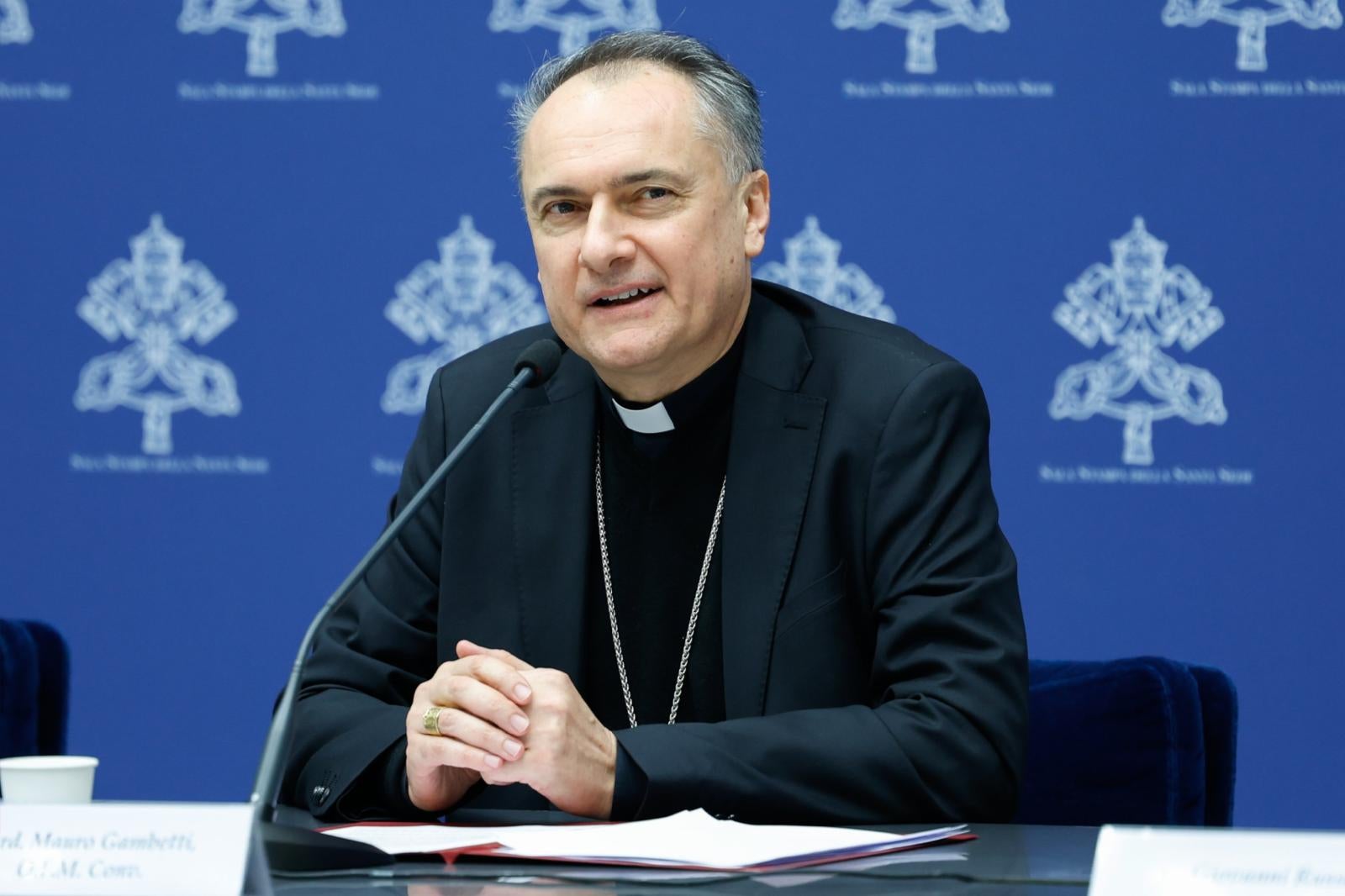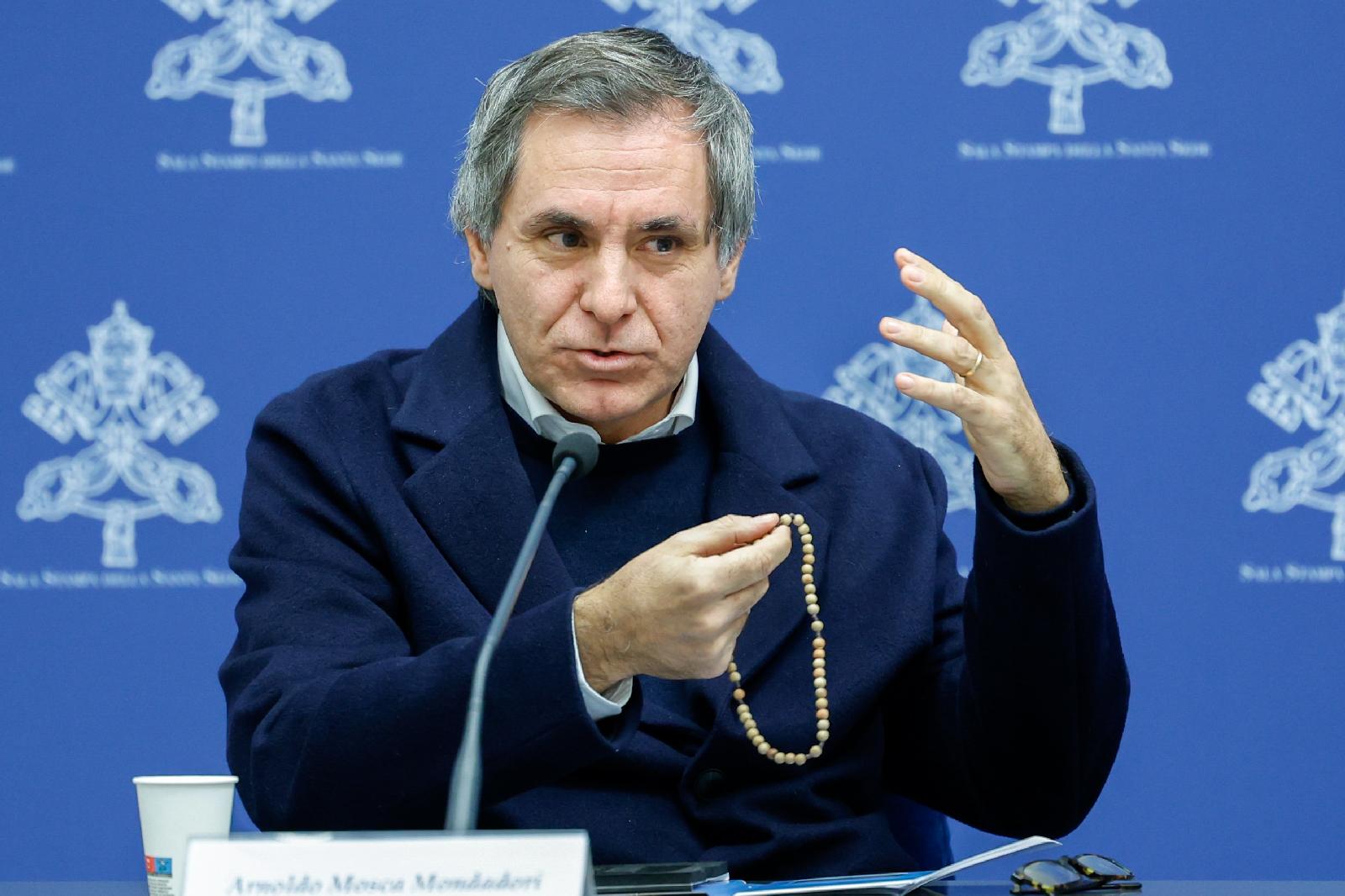Faith and forgiveness: Holy Year is ‘also for the incarcerated’
VATICAN CITY (CNS) — Millions of pilgrims flock to Rome every 25 years to mark a Holy Year, or jubilee, the Catholic Church’s more modern celebration of an ancient Jewish practice of forgiveness. And through partnerships with prisons and incarcerated persons, the Vatican hopes to show those visitors that the spirit of forgiveness remains front and center of the church’s long tradition of celebrating Holy Years.
While several distinct “jubilees” have been scheduled to take place at the Vatican for 2025, such as the “Jubilee of Teenagers” or the “Jubilee of the Sick and Health Care Workers,” the Holy Year is meant for “all people; the jubilee therefore exists also for incarcerated persons,” Giovanni Russo, head of the Penitentiary Administration Department of the Italian Ministry of Justice, said during a news conference at the Vatican Dec. 5, 2023, announcing a partnership with the Fabbrica di San Pietro, the Vatican office responsible for maintaining St. Peter’s Basilica.
Cardinal Mauro Gambetti, archpriest of St. Peter’s Basilica, presented two initiatives undertaken by the basilica rooted in the Holy Year spirit of forgiveness and including those who have been cast out of society.
The first involves incorporating incarcerated persons into the workforce at St. Peter’s Basilica. One incarcerated person currently works in St. Peter’s Basilica six days a week and six hours a day. His mom still “goes around with a tissue to dry her tears of joy” over her son having a job, said Flavia Filippi, founder and president of the “Seconda Chance” Association which works to connect people in prisons to work opportunities.
She added that the association had been asked to find another electrician to work in the basilica as well as someone to work in the refreshment stand for visitors climbing its dome, and that more incarcerated persons will be inserted into the basilica’s workforce by the Holy Year.
The other initiative makes available in the basilica’s museum shop a “Rosary of the Sea,” a rosary made by incarcerated persons and refugees from wooden migrant boats shipwrecked off the coast of Italy. Two refugees currently work in the workshop of St. Peter’s Basilica and some 30 people work in prisons to make the rosaries, Arnoldo Mosca Mondadori, founder and president of the “House of the Spirit and the Arts” foundation which organizes the rosary initiative, said at the news conference. The first rosary produced through the initiative by those in prison was given to Pope Francis.
Mondadori said he was struck by the many people who visit the workshops in prison “who do not believe, who do not have faith, but want to understand what a rosary is and want to take it home with them; they study it and ask ‘what are these ten balls?'”
“It is then the incarcerated person that says, ‘they are the ten Hail Marys and this is the Our Father,’ so we have even seen an evangelization in the prisons,” he said.
During the press conference, Filippi gave Cardinal Gambetti a sports bag with a logo featuring the dome of St. Peter’s Basilica and sown by incarcerated persons. She said that the bags and other products made by incarcerated persons would soon be available for sale in the basilica’s museum shop and in the gift shop on Via della Conciliazione, the long pedestrian road that leads to St. Peter’s Square and the basilica.
The cardinal referenced the Jewish history of the Holy Year, which was celebrated every 50 years according to the Law of Moses and called for the restitution of land to the original owners, the remission of debts, the liberation of slaves and for land to be left uncultivated. The Catholic Church’s first Holy Year was proclaimed in 1300 by Pope Boniface VIII, who called for “a year of forgiveness for all sins” in response to the wars, diseases and suffering at the time.
Even today, Cardinal Gambetti said, “this is the perspective of the jubilee: to fight so that all forms of misery, not only economic misery but also cultural misery, spiritual misery, are combated, because only in this way are the conditions put in place so that each person can in his dignity express himself, can grow, can enjoy the goods of earth and heaven.”
Russo said that justice “is the recognition of the dignity of all persons,” including those “whose freedom is limited, those confined to penitentiary institutions.” He added that “to be just in the execution of a penalty is to always consider (a person’s) human essence, and in this sense work plays a key role.”
He clarified that enabling incarcerated people to work is not an additional punishment or a “way of filling otherwise idle days” of people in prison.
“No, work is an instrument, a means to find oneself, to find one’s dignity, to build and rebuild one’s personhood,” he said.
He specified that “prison work is paid work” in Italian prisons. Incarcerated persons in Italy are paid for their labor, have a right to paid time off, sick leave and make pension contributions.
“We match together these needs, this jubilee mission with the needs of those who are on the margins of the margins,” Russo said.
Cardinal Gambetti urged the pilgrims that will descend upon Rome in 2025 to also prepare for the Holy Year spiritually, because he said living out justice and forgiveness “is only possible if one draws on a spiritual dimension that enables one to have a very wide gaze of the heart.”
He said that the initiatives are meant to “give concreteness to the ideas of the jubilee,” and that by inviting those on the margins to contribute to the activities of the church, “you can truly respect each person, everyone, and thus build social friendship and not social competition.”

